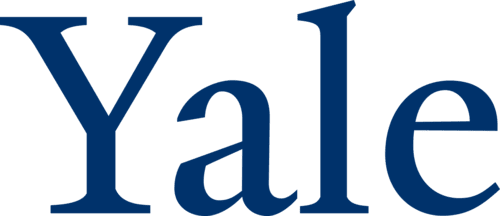Welcome to Your Medical Journey in Europe with Think Smart Tutors
Guide to Applying for Healthcare and Medicine Programs in Europe for IB Students
Think Smart IB Tutors are the most qualified in the industry at offering first rate tutoring to International Baccalaureate students.
Think Smart Tutoring is rated excellent on
Considering a career in healthcare?
Does the idea of studying abroad appeal to you?
Top Reasons to Choose European Medical Schools:
Quality & Accreditation
European medical degrees are comprehensive and aligned with international standards. You'll study in modern facilities, using the latest medical technologies and teaching methods. These programs are fully accredited, recognized across the EU, and listed in the World Directory of Medical Schools.
Global Recognition
Graduating from a European medical school means your degree will be respected wherever your career might take you. These schools adhere to high educational standards and prepare you for medical licensing exams in various countries.
Diverse Opportunities
From the vibrant cities of Central Europe to the Mediterranean's sunny coastlines, Europe offers diverse settings for your medical studies. Each location not only enriches your educational experience but also broadens your cultural horizons.
This guide will walk you through what you need to know about pursuing a medical degree in Europe, directly from the perspective of our IB college counselors, some of whom have navigated medical school themselves.
Whether you're currently enrolled in the IB Diploma and just starting to explore your options or are ready to apply, we're here to help.
Think Smart students now attend
Advantages of Studying Medicine in Europe
Europe offers some distinct advantages over the more traditional pathways in the UK and the US, especially when it comes to cost and program structure. Here's what makes European medical schools stand out:
Cost-Effective Education:
Generally, studying medicine in Europe can be significantly less expensive than in the UK or the US. Annual tuition fees in European universities can range from about €6,000 to €55,000, making it a more accessible option for many students.
Streamlined Courses:
Many European countries offer medical programs that allow direct entry right after high school, bypassing the need for a separate bachelor’s degree. This not only shortens the overall time spent in school but also gets you into the field faster.
As an IB student you may already be well aware of this, but whether it's the cost savings or the direct path to a medical career, European medical schools provide compelling reasons to consider them for your medical education.
What’s the Application Process for European Medical Schools?
1. Admission Test:
Many European universities require an admission test as part of the application process. The specific test can vary - some countries have standardized tests like the IMAT in Italy, while others may use unique tests tailored to their own universities.
2. Curriculum Vitae (CV):
A well-crafted CV is crucial as it outlines your academic achievements, extracurricular activities, and any work experience relevant to your medical career aspirations.
3. Motivation Letter / Personal Statement:
This personal letter is your opportunity to explain why you want to pursue a career in medicine, highlighting your passion, long-term goals, and why you've chosen a particular university or country for your studies.
4. Interview:
Not all, but many universities conduct interviews as part of the selection process. These can vary in format, but many employ the Multiple Mini Interview (MMI) technique to assess candidates' suitability for a career in medicine.
Again, it's crucial to research the specific requirements of each university you're interested in.
This ensures that you can tailor your application to meet their criteria effectively.
By preparing thoroughly for each aspect of the application process, you enhance your chances of success and move one step closer to your goal of studying medicine in Europe.
For personalized guidance and expert advice, consider reaching out to a college counselor who specializes in European medical admissions.
Deadlines for Medical School Applications in Europe
When planning to apply for medical school in Europe, it's essential to be aware of the varying application deadlines, which can range from as early as January to as late as September, depending on the university and the country.
Key Timeline Considerations:
Early Applications: Many universities encourage or require early applications, especially for competitive programs.
Varied Deadlines: Since deadlines can significantly differ, it’s crucial to create a checklist and timeline specific to each university you are applying to. This ensures you never miss a deadline and have enough time to gather all required documentation.
Proactive Preparation:
Plan Ahead: To avoid the stress of last-minute submissions, start gathering information and preparing your application materials months in advance. This includes drafting your motivation letters, updating your CV, and preparing for potential interviews.
Submission Strategy: Aim to submit your applications well before the deadline. This not only demonstrates your eagerness and commitment but also gives you a buffer in case of any unforeseen delays or technical issues.
For more detailed guidance tailored to specific European medical schools, connecting with a college counselor who specializes in this area can be incredibly beneficial.
EU Medical School Preparation Tips for IB Diploma Applicants
Gaining relevant medical experience is a crucial part of preparing for your application to medical school in Europe. Not only does it strengthen your CV, but it also demonstrates your commitment to the field of medicine. Here’s how you can enhance your application:
-
Clinical Exposure: Try to get exposure in clinical settings in between IB years through shadowing doctors or volunteering at healthcare facilities. This gives you a practical insight into the medical field and provides valuable experiences to discuss during interviews or in your motivation letter.
Research Opportunities: Participating in medical research or similar scientific projects can significantly bolster your application. It shows your ability to engage with the scientific community and contributes to your understanding of medicine.
Volunteering: Engaging in volunteer work, especially in roles that involve care and support, can be highly beneficial. Activities like working in community health centers, elderly homes, or with disabled individuals help develop empathy and communication skills, key attributes for anyone pursuing a career in medicine.
-
Diversified Experiences: While clinical and research experiences are impressive, also consider activities that can showcase your leadership, teamwork, and problem-solving skills. These can include organizing health awareness campaigns, leading student groups, or participating in health-related workshops.
Continuous Learning: Stay informed about the latest developments in medicine by attending seminars, subscribing to relevant journals, and following leading medical professionals on platforms like LinkedIn or through professional networks.
-
Reflective Journaling: Keep a detailed record of your experiences, noting what you learned and how it has influenced your perspective on medicine. This can be a rich resource when writing your personal statement or preparing for interviews.
Letters of Recommendation: Build good relationships with professionals and IB teachers who can vouch for your abilities and dedication. A strong letter of recommendation from someone who has directly observed your commitment can make a significant impact.
Remember: the key to a successful medical school application is not just about meeting the requirements but showing a genuine passion for medicine and a clear understanding of what a medical career entails.
FAQ About Studying Medicine in Europe:
-
Absolutely! English-taught medicine programs are available in several European countries, including Germany, Ireland, Italy, Cyprus, Greece, Czech Republic, Croatia, Bulgaria, and Romania. These programs are designed to cater to international students, making it easier for you to study abroad.
-
The cost varies widely—tuition fees can range from about €6,000 to €55,000 per year. Typically, you'll find more affordable programs in countries like Romania, while programs in Ireland tend to be on the pricier side.
-
European medical schools hold IB scores in high regard due to the demanding nature of the IB curriculum. While your IB scores are crucial, universities also look at other elements such as admission tests, your motivation letter, CV, interviews, and any relevant medical activities. At Think Smart Tutoring, we make sure every part of your application shines, not just your academic scores.
-
Each medical school in Europe might have its own set of tests. For instance, public universities in Italy require the IMAT, whereas in Cyprus, the University of Nicosia doesn't require an admission test. Irish medical schools, on the other hand, require tests from EU and Irish students. It's important to check the specific requirements of each university you're interested in.
-
Generally, you'll need to have studied both IB Biology and IB Chemistry at Higher Level, and IB Mathematics at either Standard Level or Higher Level. Some schools may also ask for IB Physics.
-
IB Predicted grades and mock exams play a significant role in your application, especially in competitive admissions landscapes like those in the US. They help universities gauge your potential before final results are available. Our team at Think Smart provides expert guidance to ensure these predictions reflect your true potential.
-
Beyond academic advice, we offer a full spectrum of support to enhance your application. This includes assistance with crafting impactful motivation letters, preparing for interviews, and choosing activities that bolster your application profile. Our holistic approach ensures you present a compelling and complete application to your chosen universities.
How Think Smart Tutoring
Can Help You Get Into EU Medical Schools
Applying to medical schools in Europe is notoriously tough, but you don't have to go through it alone.
At Think Smart Tutoring, we're equipped to guide you through the entire application process. Here’s what we can do for you:
Tailored Test Preparation: We offer customized coaching to help you ace admission tests, whether it’s the IMAT or other country-specific exams.
Writing Your Medical School Motivation Letter: Our advisors help you develop effective motivation letters that truly convey your enthusiasm and qualifications for studying medicine.
Interview Techniques: We prepare you to face any interview confidently, giving you the strategies to impress at MMIs or traditional interviews.
What our students and parents are saying on Google (4.9)
Ready to chase your dream of studying medicine in Europe?
Connect with us for a first meeting with one of our EU medicine admissions specialists. Discover the wide range of resources and personalized support services we provide at Think Smart Tutoring.

The university of your dreams is within reach. Our tutees are already there.
We can help you with your Medical University admissions the way we helped our successful students.
2k+
students trained
94%
success rate
11+
years of experience
















